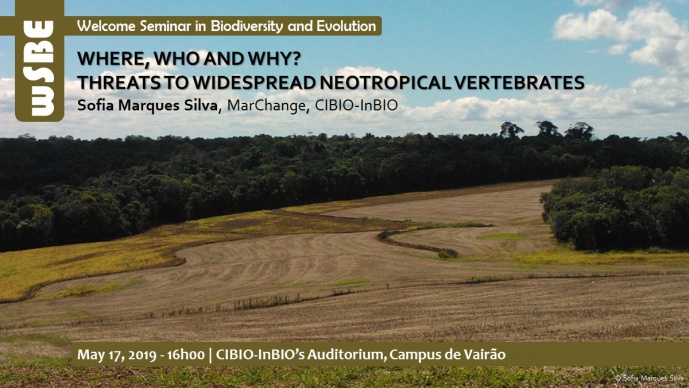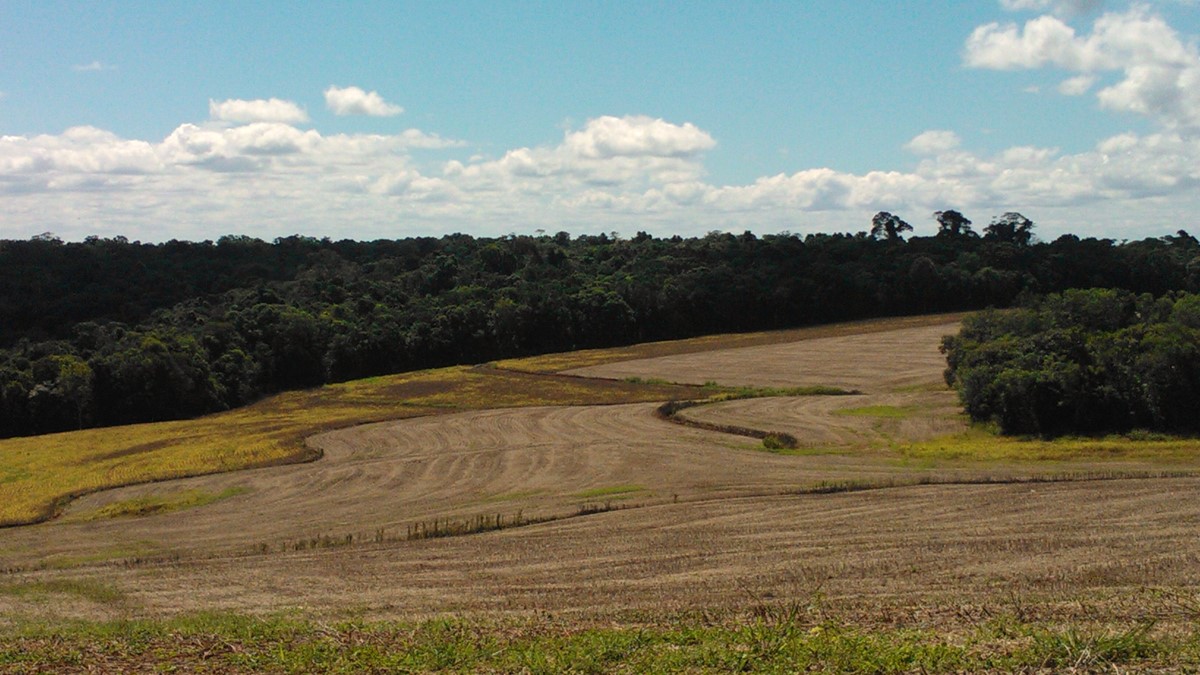WHERE, WHO AND WHY? THREATS TO WIDESPREAD NEOTROPICAL VERTEBRATES

WELCOME SEMINAR IN BIODIVERSITY AND EVOLUTION

The Neotropical realm holds high levels of biodiversity, spread over a wide land area, in a variety of heterogeneous habitats and a multitude of intricate ecosystems. Due to this complexity, the biogeographic history of this territory is still poorly known. Multiple models have been suggested to attempt to explain the historical processes behind such diversity, but so far the majority was proven too simplistic. Facing mysterious inhospitable landscapes, the first naturalists were challenged to find enough taxonomic representatives to accurately describe the Neotropical biodiversity and trace the exact distribution of the new species being discovered to science. Despite the enormous efforts and advances achieved, these difficulties remain. Many Neotropical taxa still need taxonomic revision and a more accurate definition of their area of occurrence. This is true for hard to access, geographically restricted taxa, but is more striking in widespread species, for which the difficulty to obtain a representative sampling in such a wide area has often resulted in misrepresented taxonomic units and misinformed phylogenetic relationships among them. This lack of overall understanding of evolutionary history and taxa distribution, taxonomy, and even other fundamental biological features, adds to the galloping anthropogenic habitat conversion and the ineffective location of the current system of protected areas in threating Neotropical biota. Overlooking widespread Neotropical species might have already resulted in the loss of still unrecognized biodiversity. In this talk, several empirical examples are presented, illustrating each of the aforementioned topics and discussing their consequences for the conservation of Neotropical widespread species.
Sofia Marques Silva is a CIBIO-InBIO researcher. She has a Master’s Degree in Biodiversity and Genetic Resources from CIBIO-InBIO, FCUP and a PhD in Biology (Genetics) from the University of São Paulo, Brazil. Sofia have worked has a post-doctoral researcher and post-graduation teacher in Museu Paraense Emílio Goeldi, in Belém, northern Brazil, from 2014 to 2018. Her scientific main interests include understanding the biogeographic history of Neotropical biomes, particularly the Amazon and Atlantic forests, and the evolutionary history of its vertebrate fauna. Sofia is experienced in population genetics and genomics, phylogeography and phylogenetics / phylogenomics of Neotropical mammals and birds. She is currently studying seasonal changes in microbiota communities in fishes and the correlation between microbiota and social interaction in birds.
[Host: Raquel Xavier, Ecology and Evolution of Aquatic Organisms]
Image credits: Sofia Marques Silva